ChatGPT Plugins
Usually, I’m not one for long-winded explanations, but this topic is so exciting that I just have to share my thoughts on why the OpenAI ChatGPT plugins might just be the next big thing. So, buckle up and let’s dive in!
A typical customer journey was until now,
- accessing the internet through a browser,
- searching to reach desired query,
- accessing the information,
- getting access to desired operations
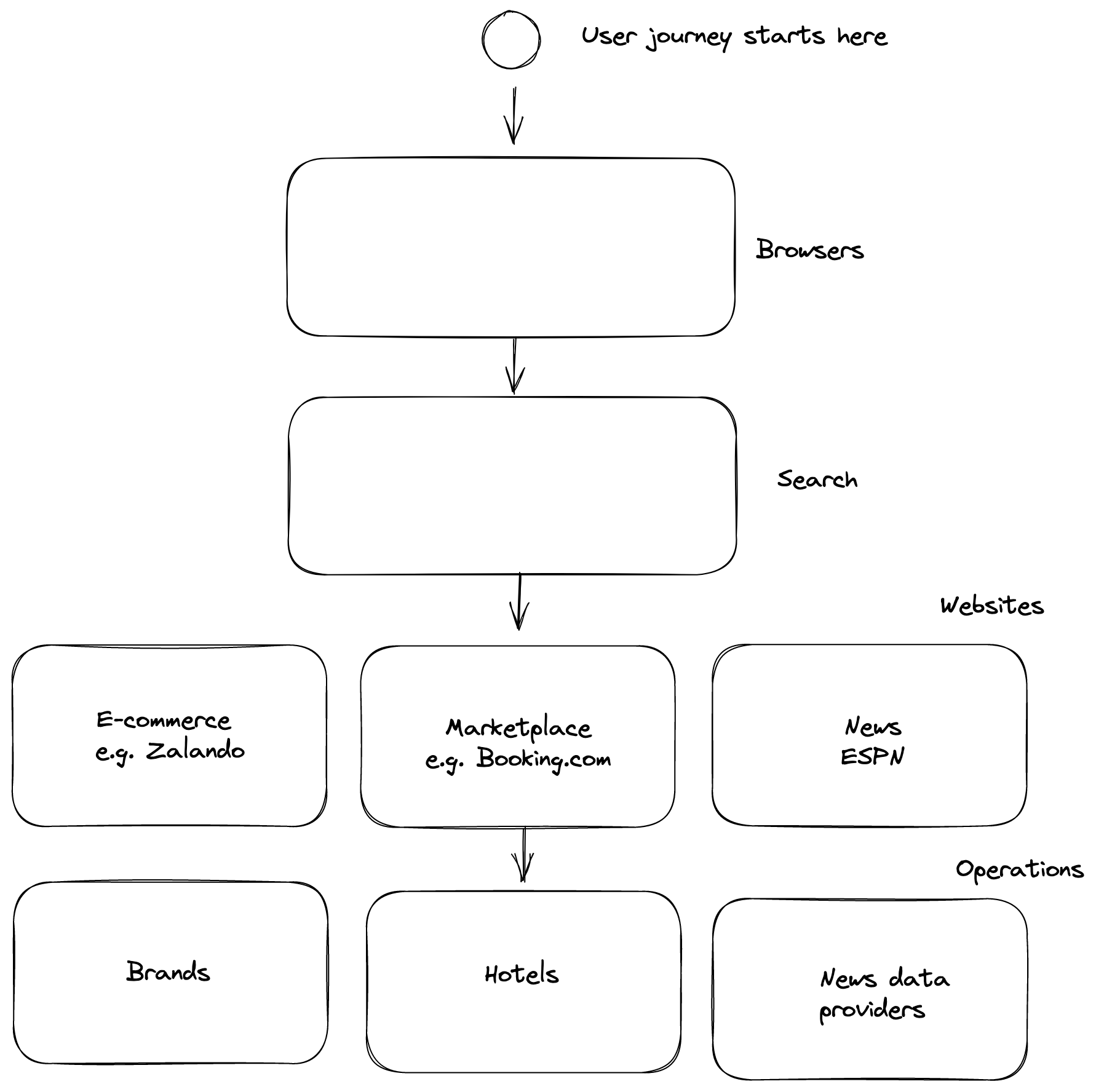
Google has been the undisputed ruler of the customer journey for years now, dominating both browsers with Chrome and search engines with Google.com. They’ve even gone a step further by introducing their own suite of products to capture more data on the user and replace other websites, like Google Flights and Google For Retailer. It’s clear that Google has been playing the long game, but is it time for a new player to shake things up?
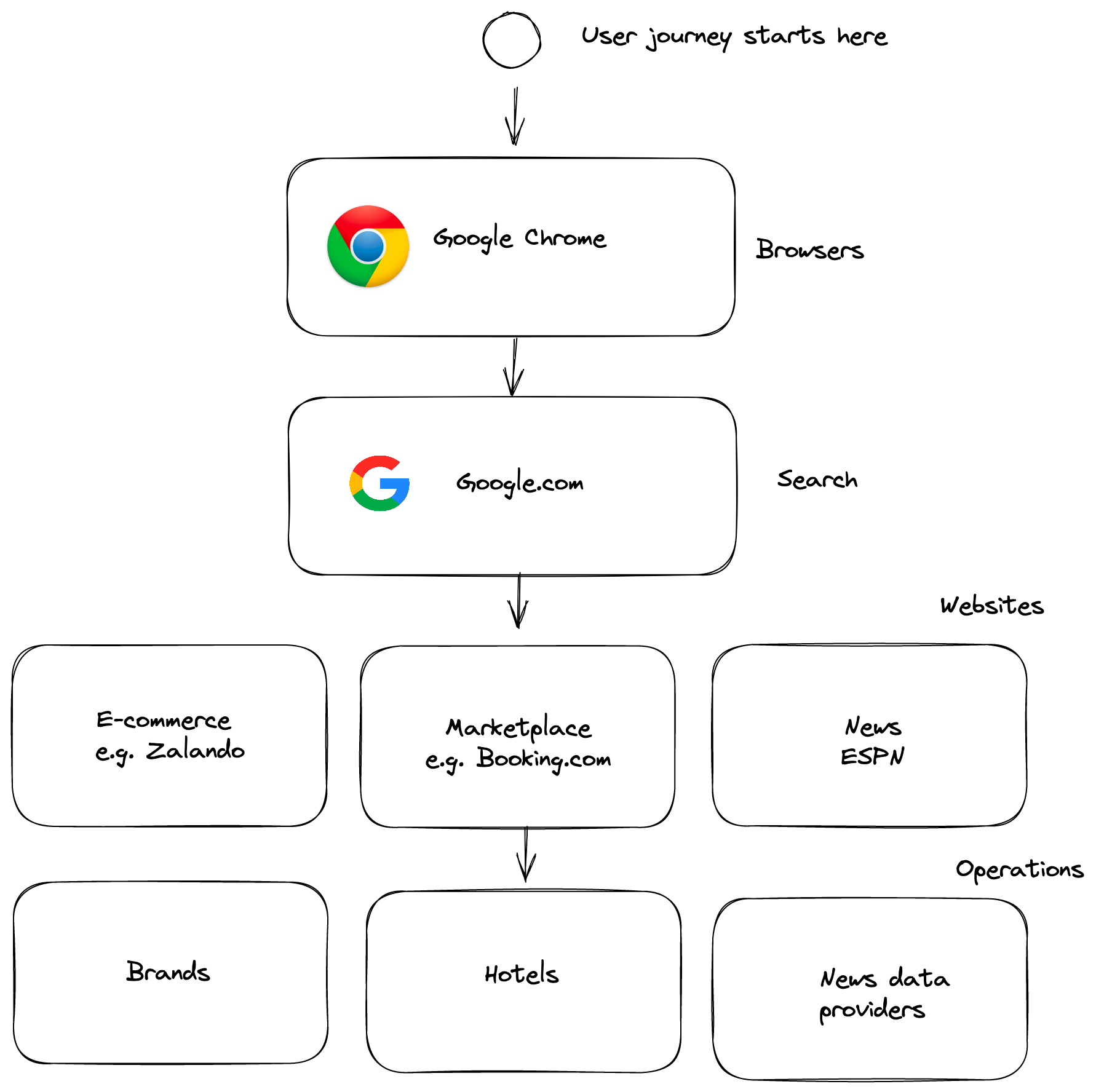
OpenAI’s ChatGPT is finally giving Google a run for its money by disrupting the traditional customer journey. With ChatGPT, people are starting to reimagine how a search can be done - forget typing in a search bar, you can now talk directly to an agent and get the information you need. And while Siri and Amazon Alexa have already attempted this, ChatGPT is trying to take it to the next level. However, until two days ago, ChatGPT was still “limited” because it didn’t have access to the latest information and the “internet”.
The introduction of the ChatGPT plugins has revolutionized the game yet again - ChatGPT now has plugs into the “internet” and can be fed with all the websites out there. This means that the traditional customer journey is about to get a serious shake-up.
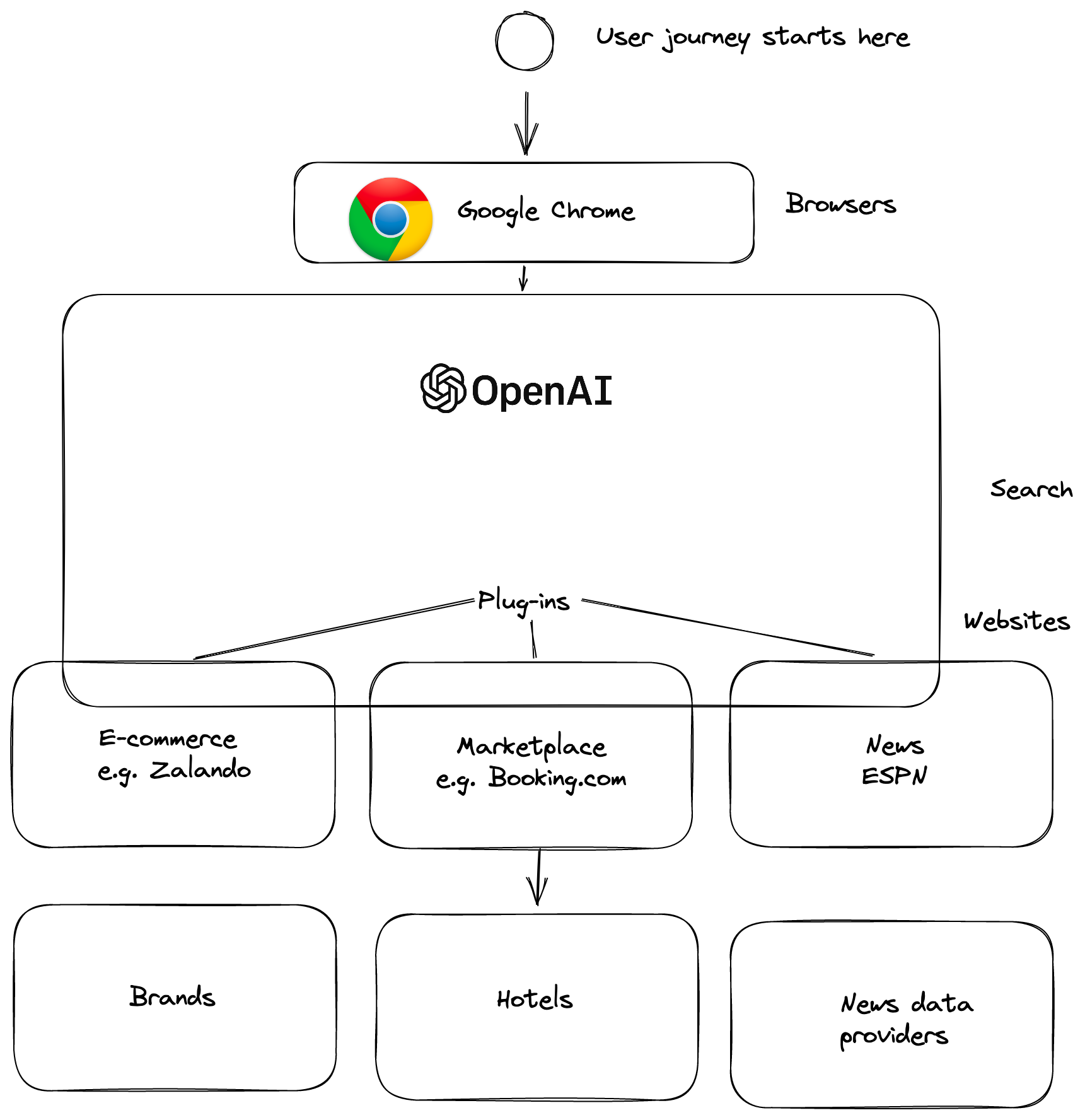
But why should OpenAI stop there?
Let’s take a moment to ponder what the future might hold.
- What if OpenAI doesn’t need Chrome or any other browser?
- What if they don’t need middle-men either? Instead, they could allow operation providers to connect directly with customers through the ChatGPT interface.
Let’s go a bit deeper, why it may make sense
-
Think about it - web browsers were designed back in the early 90s for the sole purpose of browsing URLs and seeing rendered websites. But a conversational user interface, like those found on WhatsApp or Telegram, doesn’t require full browser capabilities. It’s a completely different interaction, and one that could revolutionize the way we access information.
-
And what if OpenAI took a 15% cut from each transaction that happens on ChatGPT (hi 👋🏼 Apple)? That’s a game-changer right there. Suddenly, large e-commerce shops, marketplaces, and aggregators become obsolete. Until now, those companies existed because they were more capable of digital operations than operation providers. But with the advent of conversational interfaces, the entire tech infrastructure of websites is changing. Those websites are losing ground quickly, and operational providers are stepping up to take their place.
Take Nike, for example. They sell their shoes on Zalando, a tech company that’s focused on customer satisfaction with digital products. But with a universal interface like ChatGPT, Nike won’t need high-level digital capabilities anymore. They’ll just be a supplier with a simple ERP-API connection. This means many new possibilities for Nike.
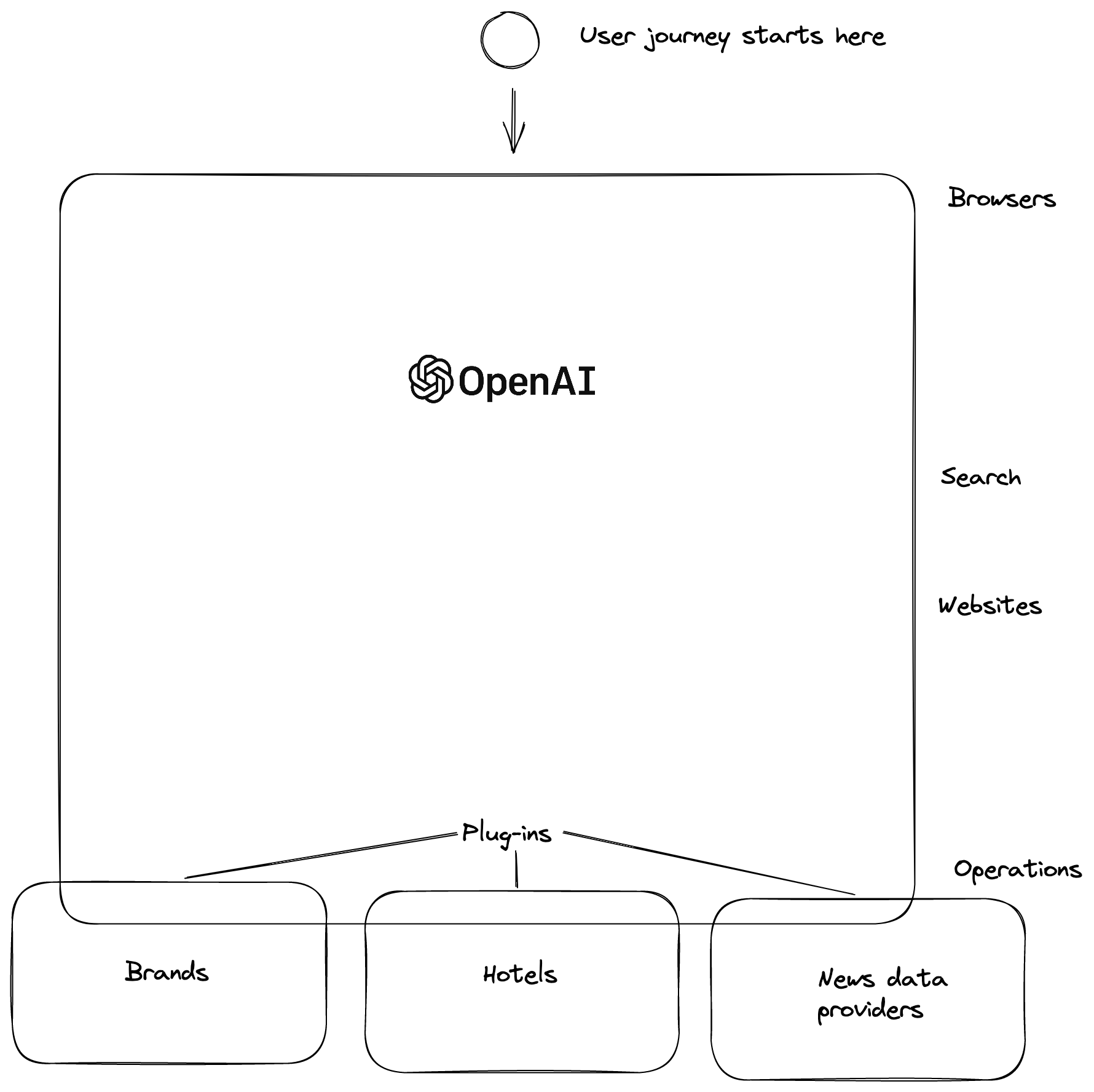
And the possibilities don’t stop there - what if OpenAI doesn’t even need your laptop, phone, or any other device in the future? Could they potentially become a device manufacturer and own the entire journey? Maybe they’ll create something like the NoPhone idea, or internet-connected cableless headphones, or even IronMan’s Jarvis.
This reality may come sooner than we think, and I’m not the only one who sees it as a game-changer. Apple has already announced their LLM model for iPhone for privacy, which will work on their M1, M2, and M3 chips [source].
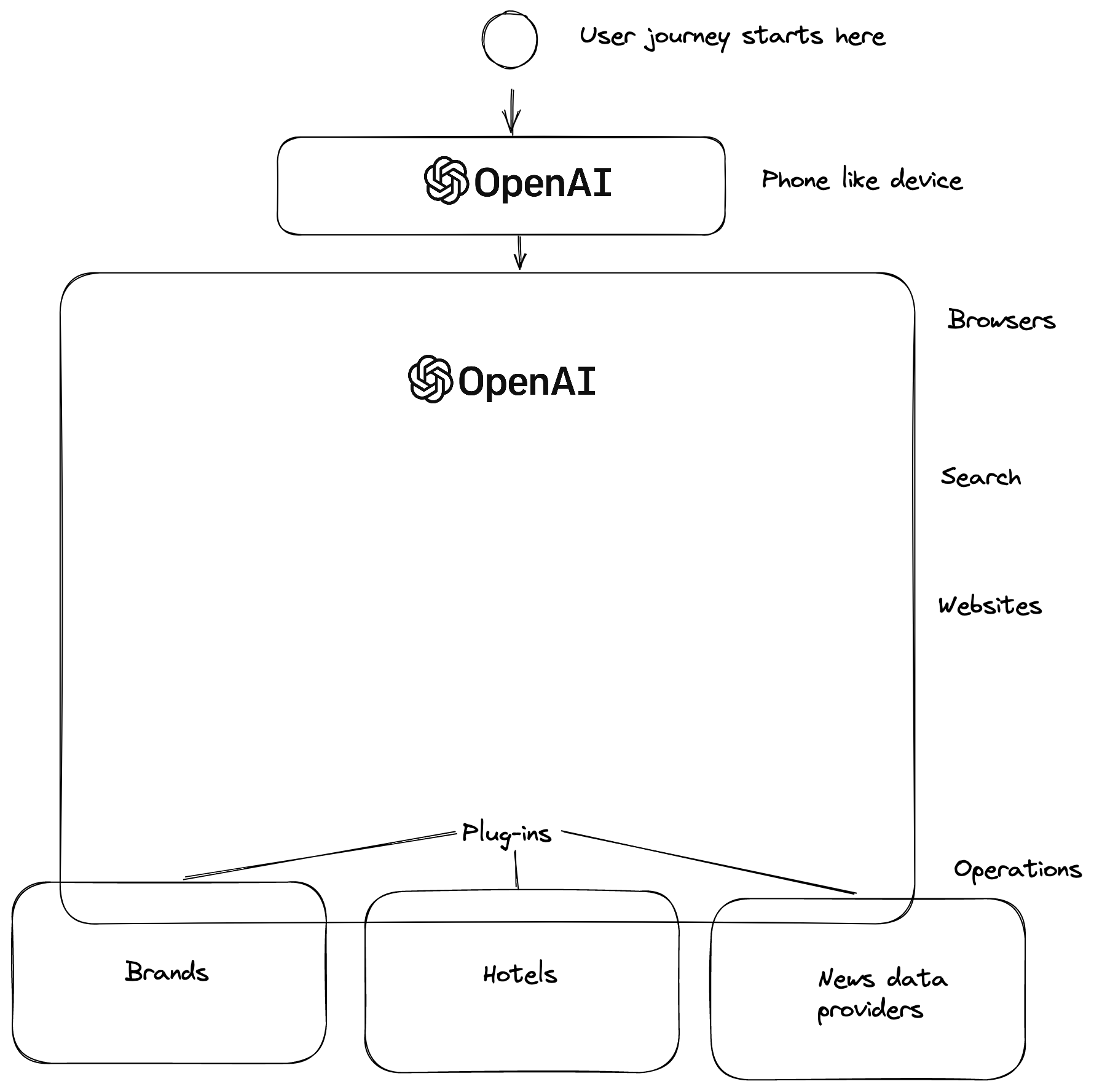
My thoughts and take-aways:
- This can be the next big thing after 90s web1.0, 2000s web2.0, 2010s mobile era - 2020s AI era.
- people were expecting multiple LLM models from OpenAI, Google, Meta, and other players. However, an ecosystem of plugins could create significant momentum for OpenAI, potentially making it difficult for other companies to compete. This is reminiscent of how the iOS AppStore was always superior to other app stores, which helped make the iPhone such a big success story.
- An end-to-end system that supports the entire customer journey makes perfect sense. Alexa tried to do it in the past, but the technology just wasn’t up to par at that time. With the introduction of ChatGPT and the new plugins, we’re one step closer to realizing this vision.
- As for the future of AI, it’s both exciting and scary. The possibilities are endless, but we need to be mindful of potential downsides and work to mitigate them as we continue to push the boundaries of what’s possible. But with the right mindset and approach, the future is looking brighter than ever.
In this article, we did not cover how backend engineering may be disappeared in the near future - next article I will cover this topic.
🎩 The ideas and frameworks are mine, but article is partially written with support of GPT-4.